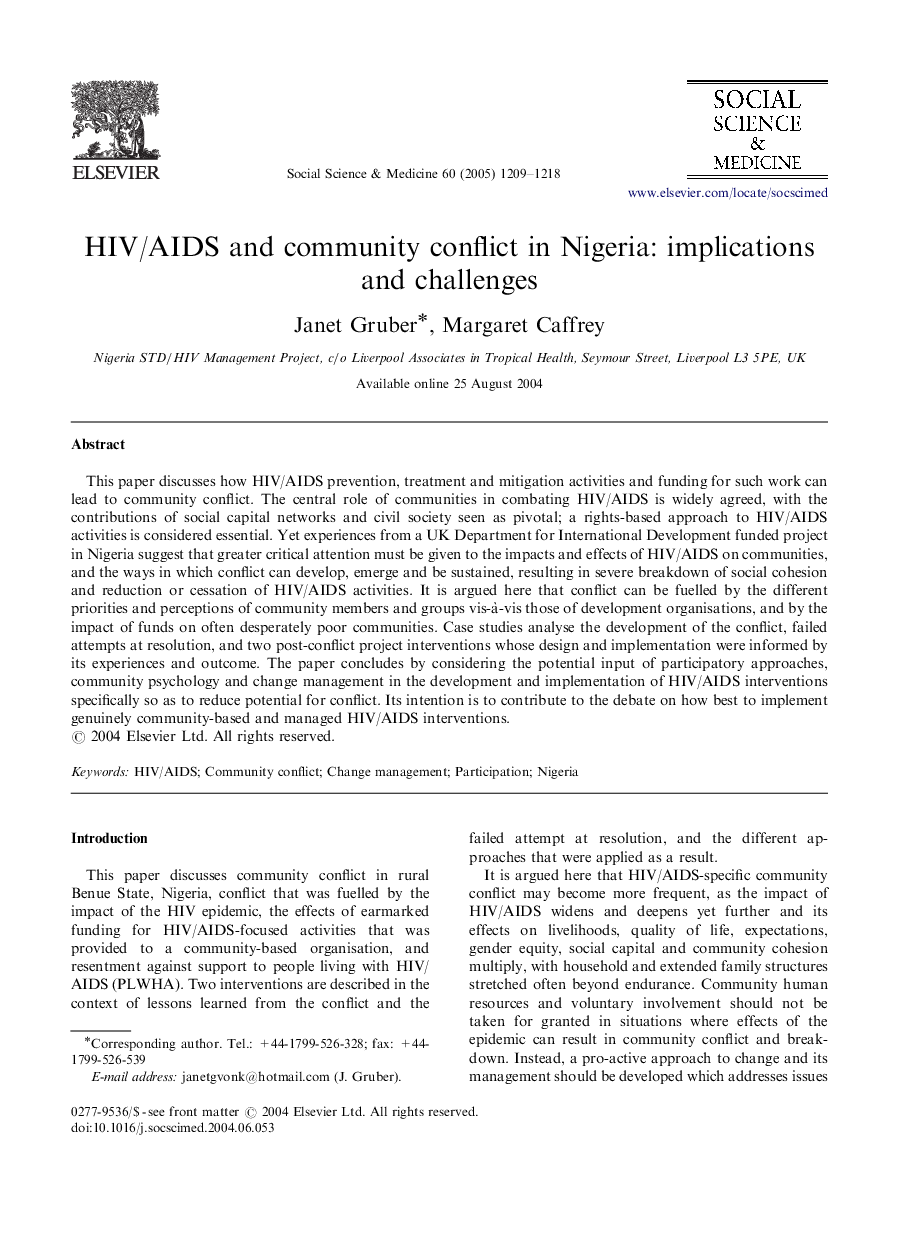| Article ID | Journal | Published Year | Pages | File Type |
|---|---|---|---|---|
| 10473137 | Social Science & Medicine | 2005 | 10 Pages |
Abstract
This paper discusses how HIV/AIDS prevention, treatment and mitigation activities and funding for such work can lead to community conflict. The central role of communities in combating HIV/AIDS is widely agreed, with the contributions of social capital networks and civil society seen as pivotal; a rights-based approach to HIV/AIDS activities is considered essential. Yet experiences from a UK Department for International Development funded project in Nigeria suggest that greater critical attention must be given to the impacts and effects of HIV/AIDS on communities, and the ways in which conflict can develop, emerge and be sustained, resulting in severe breakdown of social cohesion and reduction or cessation of HIV/AIDS activities. It is argued here that conflict can be fuelled by the different priorities and perceptions of community members and groups vis-Ã -vis those of development organisations, and by the impact of funds on often desperately poor communities. Case studies analyse the development of the conflict, failed attempts at resolution, and two post-conflict project interventions whose design and implementation were informed by its experiences and outcome. The paper concludes by considering the potential input of participatory approaches, community psychology and change management in the development and implementation of HIV/AIDS interventions specifically so as to reduce potential for conflict. Its intention is to contribute to the debate on how best to implement genuinely community-based and managed HIV/AIDS interventions.
Related Topics
Health Sciences
Medicine and Dentistry
Public Health and Health Policy
Authors
Janet Gruber, Margaret Caffrey,
